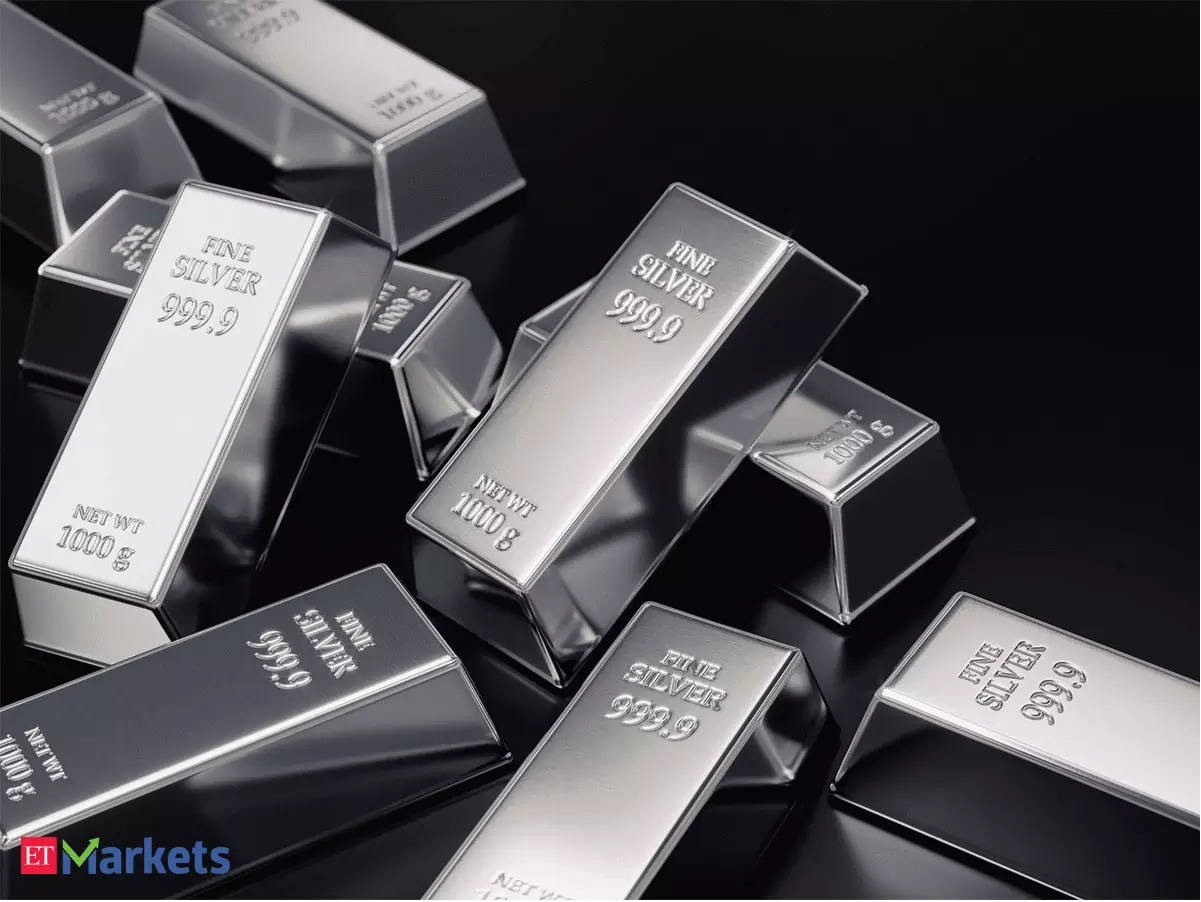Silver hits lifetime high. Will the rally continue?
The bullish rally in gold also had a positive influence on silver prices. Historically, silver and gold, both considered precious metals, are often influenced by similar market conditions. Due to this similarity, both can exhibit similar price movements, with silver prices, often following the trends of gold prices
in the domestic market are at lifetime highs amid multiple catalysts like safe-haven demand due to escalating geopolitical tensions, hopes of US interest rate cuts, speculative buying, and a sharp rally in industrial metals. Meanwhile, the performance of the benchmark London spot silver remained sluggish but hovering near three-year highs.In the key MCX futures platform, prices reached an all-time high of Rs 84,515/kg last week, gaining about 12% in the last two weeks. A similar move was witnessed in overseas platforms, but the metal was trading down by over 40% from its lifetime high of $49.51 an ounce tested in April 2011.
The swift rise in prices is primarily due to its unique industrial properties, which set it apart from gold. Key industrial metals like Copper, Aluminium, Zinc, and Lead prices have risen sharply since April on worries over supply constraints. This has prompted speculators to bet largely on silver.
The ongoing bullish rally in gold also had a positive influence on silver prices. Historically, silver and gold, both considered precious metals, are often influenced by similar market conditions. Due to this similarity, both can exhibit similar price movements, with silver prices, often following the trends of .
In the past few years, the price performance of silver has been different from gold. While silver is influenced by both investment and industrial demand, its industrial uses can create additional volatility in its price compared to gold, which is primarily driven by investment and jewelry demand.
In addition, expectations of the US rate cut, which can stimulate borrowing and spending by both consumers and businesses, may boost industrial growth. Stronger industrial growth typically translates into higher demand for silver, which can push prices up.
Higher interest rates and issues such as the war between Israel and Hamas and the prolonged Russia – Ukraine conflict are adversely affecting the global growth outlook. Economic degrowth typically increases the demand for silver, which is occasionally considered a hedge against inflation.
The ongoing momentum-driven buying is likely to extend in the immediate run, driven by a robust rally in gold. Expectations of interest rate cuts, escalating geopolitical tensions, and enduring inflation concerns could help prices stay firm. However, it is less unlikely to register fresh lifetime highs in its key international market.
China plays an increasingly important role in the global silver market. The country is a major player in various industries, including electronics, solar energy, and manufacturing, in which silver is widely used. Therefore, growth in these sectors contributes to the demand for the commodity in China.
However, the recent string of downbeat economic releases and steady rise in debt highlighted the intensifying pressure on their economy and thus, the demand for the commodity in the long run.
(The author, Hareesh V, is Head of Commodities, Geojit Financial Services. Views are own)
